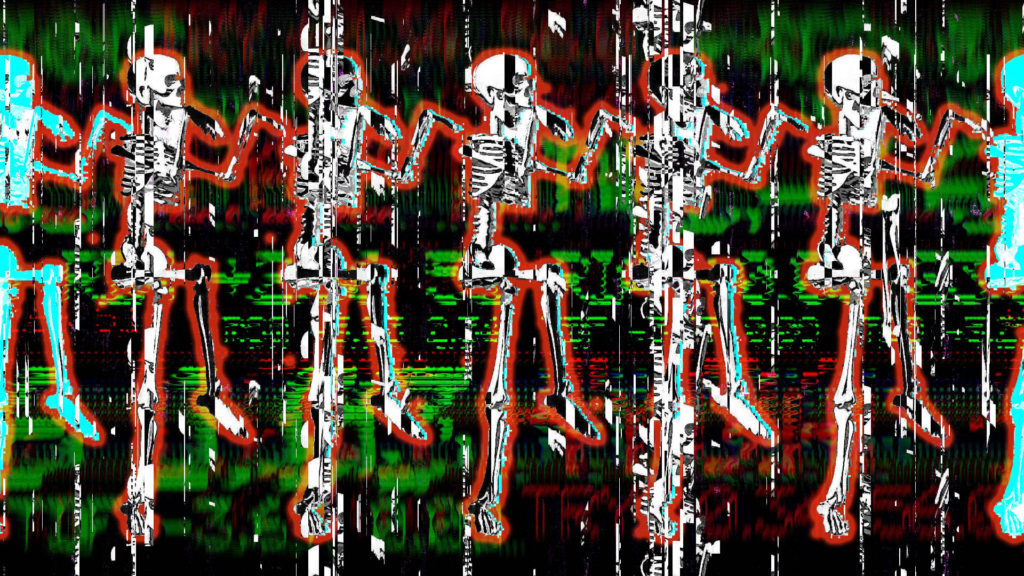What does a death toll do for us? Body counts become a morbid afterimage of a disaster imprinted on the history of an event, the baseball card summary of human anguish. Thinking in terms of numbers helps us distance ourselves from the most exigent nightmares in our world today. Statistics soothe the soul, placing us in the role of analyst, rather than a potential subject of these same disasters. Let’s look at one of these numbers: 104 people were killed in the 2018 fire season in California. That was in my own backyard. I breathed that in. There was nothing to be done then – the firefighters were at their work, the mudslides slowed things down, and dead bodies were being identified amidst the gutted homes, the destroyed histories. The anomalous nature of disasters lends itself towards this kind of empty signifier.
These signifiers are directionless. They point towards no conclusions, they paralyse the mind with their scale. For as much as taking in the horror of the body count is a part of our collective response to disaster, it is not the memorial the dead deserve. We have to shift into a murkier realm for the meaning these bulletpoints – who is responsible? Who has done this to us? There are names and addresses, as Utah Philips would remind us.
Our rituals of mourning do not leave any space for the vengeance that is owed. We are chided to behave appropriately and to respect the solemnity of tragedy. In a liberal framework, tragedies are best perceived as lapses in sensible management, a shattering of the structures that irrevocably govern social relationships. In short, they shouldn’t happen, but because they do, we need a responsible outsider to step in to sort things out in a calmly and fairly. How is that working out for us right now? Pacific Gas & Electric, the company responsible for the largest portion of the death and destruction last year, filed for bankruptcy 4 months ago, seeking protection from the billions of dollars it will likely be held liable for. Their profits are only 30% what they were a year ago. The mighty fall at last.
But only in concept. That liberal managerial framework pervades all: bankruptcy is protective. The snakes slither away, as assets are rearranged in the most appropriate way, and business continues as usual, only now the costs of these tragedies will be passed onto consumers, as described in this comprehensive article from Forbes. That is the way things work for these massive companies. For those running them, the operators of this wretched machine who have inflicted this suffering onto families, communities, and the world around us? They will see no consequences. This too is part of our ritual of mourning; that the strong will succeed us, that the powerful are sheltered, and it is our role to be onlookers unless we are victims.
Our obsession with death tolls is a component of this devolved ritual: a distancing and silencing of the agony of life as a subject of corporate excesses. There have been calls to place PG&E under state ownership as a means of ensuring that rate-payers and victims are prioritized. But even this is not enough. There are killers among us, and the quiet contemplation of their victims will not take them to task. California is a blood-soaked country; hungry for resources, men broke this land in half, terrorized its inhabitants, and for their troubles, ended up in oil paintings instead of shallow graves. Ours is a land without justice. In all our bloated prisons we will never see a single one interned. The tools that we use to measure how our economy is doing are telling us these companies, by and large, are doing okay. The numbers are just fine, a statistic telling the other half of this story.
This is of course, deeply unsettling, because it’s obvious to even a passing observer that the condition of this country is disastrously deteriorating. Every state west of Colorado is erupting into flames and most of the states between the Missouri and Ohio rivers are getting demolished by floods. The world is getting too hot thanks to the faceless goons at places like PG&E, and in our quest to find someone evil to punish we point towards the great beacon of our grotesqueries, the presidents and figureheads. Meanwhile and no one can afford to see a doctor or go to college, which we do anyway, and then have to start mailing checks to places with names like “Navient” for the rest of time.
This is no way to live. Constantly reminded that the world is burning and dying, our day to day response is measured in avoidance, a kind of low-grade apathy about how little an effect all these things are having on us. We are living in an age of triumphant denial, of depressed expectations and limited horizons. I don’t mean this in a Trump’s America sense either; this tradition of stupidity far predates our latest head of state. It is our country’s history to ignore and offload the suffering we inflict, and when it is inflicted on other Americans to whom we should nominally be responsible, we simply look elsewhere, smiling at the sky. The distractions are becoming harder to come by.
If we would like to face facts, we have to wrap our heads around this: our enemy in the fight against climate change is not “carbon.” Our enemy has a desk and an office. Our enemy is a normal person just like us, who has, one way or another, found himself doing something very, very wrong. They are not necessarily the policy-makers, but people upon whom the profit-seeking motivation of capitalism rests and have had to make the call, day in and day out, that this is acceptable. “Solving” climate change means these people lose their jobs, are prosecuted for the damage they have inflicted as agents of companies like PG&E. Mass action is not a ritual. We’re done with the need for the grieving rituals; we’re not “the ones left behind,” we are the victims. We will not grieve for ourselves.

Michael Malloy is a student researcher and socialist from the Central Valley of California. His work has been published in @popula and @proteanmag. His other job doesn’t give him enough hours so he has plenty of time to be online.

